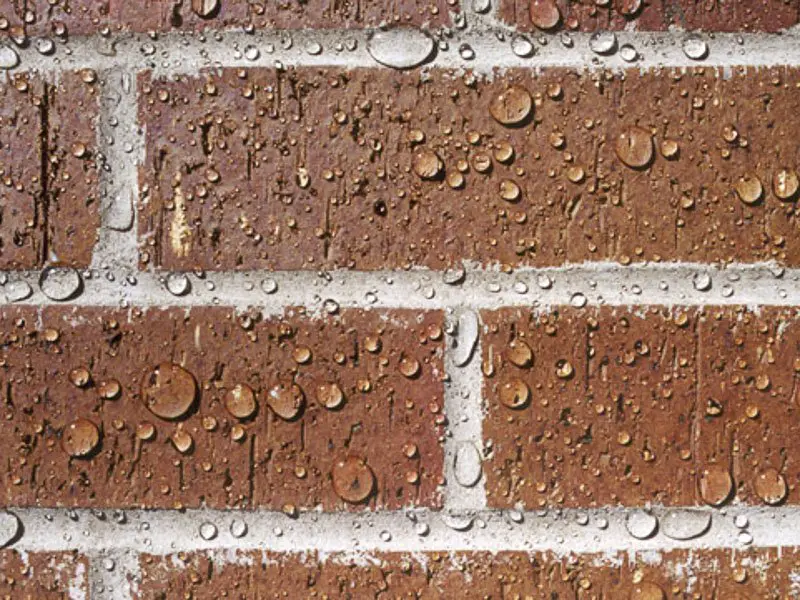
Waterproofing for brickwork is not just a luxury; it’s a necessity for preserving the integrity and longevity of your property. Without proper waterproofing, brickwork is susceptible to a myriad of issues, ranging from structural damage to mold growth and deterioration.
Importance of Waterproofing Brickwork
-
Preventing Water Damage: Bricks are porous materials, meaning they can absorb water. If water seeps into the bricks, it can lead to damage such as cracking, crumbling, and deterioration of the mortar joints. Waterproofing creates a barrier that prevents water from penetrating into the brickwork, thereby protecting it from moisture-related damage.
-
Preventing Mold and Mildew: Moisture penetration can create a conducive environment for mold and mildew growth. Waterproofing helps to keep moisture out, reducing the risk of mold and mildew formation. This not only preserves the aesthetics of the brickwork but also promotes a healthier indoor environment by preventing the growth of harmful microorganisms.
-
Preserving Insulation Properties: Water infiltration can compromise the insulation properties of brick walls. When bricks become saturated with water, their ability to provide thermal insulation decreases, leading to energy inefficiency and increased heating or cooling costs. Waterproofing helps to maintain the thermal efficiency of brick walls by preventing moisture intrusion.
-
Preventing Structural Damage: Over time, water infiltration can weaken the structural integrity of brickwork. Moisture can cause mortar joints to degrade, leading to instability and potential structural failures. Waterproofing protects the structural integrity of buildings by preventing water-related damage to the brickwork and mortar.
-
Enhancing Durability: By protecting brickwork from moisture-related issues, waterproofing extends the lifespan of buildings. It helps to preserve the appearance and structural integrity of brick facades, reducing the need for costly repairs and maintenance over time. Investing in waterproofing upfront can save money in the long run by avoiding expensive remediation efforts.
-
Maintaining Property Value: Buildings with well-maintained brickwork that is protected from water damage are more attractive to potential buyers and retain higher property values. Waterproofing is an essential aspect of building maintenance that contributes to the overall value and marketability of real estate assets.
Types of Waterproofing Materials
There are several methods for waterproofing brickwork. Here are some of the main types:
- Concrete Sealers
Concrete sealers provide a protective barrier against water penetration while enhancing the appearance of brickwork.
- Silicone Sealants
Silicone sealants offer flexibility and durability, making them ideal for sealing joints and gaps in brick surfaces.
- Bituminous Coatings
Bituminous coatings are asphalt-based compounds that form a waterproof layer when applied to brickwork.
- Polymer-Based Waterproofing
Polymer-based waterproofing products create a seamless, flexible membrane that adheres to the substrate, effectively preventing water intrusion.
- Cementitious Waterproofing
Cementitious waterproofing compounds are cement-based mixtures that bond chemically with the brick surface, providing long-lasting protection.
Waterproofing Application Techniques
The method of application plays a significant role in the effectiveness of waterproofing treatments.
- Brush Application
Brush application involves manually applying waterproofing compounds onto the brick surface using a brush or roller.
- Spray Application
Spray application is ideal for large surface areas, allowing for quick and even distribution of waterproofing materials.
- Roll-On Application
Roll-on application provides ease of use and is suitable for both vertical and horizontal surfaces.
- Injection Waterproofing
Injection waterproofing involves injecting specialized materials into cracks and voids within the brickwork to create a barrier against moisture.
- Sheet Membrane Installation
Sheet membrane installation offers a seamless waterproofing solution for large areas, providing superior protection against water infiltration.
Tips for Achieving Optimal Results When Waterproofing Brickwork
When embarking on the crucial task of waterproofing brickwork, it’s essential to follow a set of guidelines to ensure the best possible outcome. Here are some tips to help you achieve superior results:
-
Thorough Surface Preparation: Before applying any waterproofing materials, meticulously clean the brick surface to remove dirt, grime, and previous coatings. Ensure the surface is dry and free from debris for optimal adhesion.
-
Address Cracks and Damage: Prioritize the repair of any cracks or damage in the brickwork. Fill in cracks and fix deteriorated areas to prevent water ingress and maintain structural integrity.
-
Select the Right Materials: Choose waterproofing products specifically designed for brick surfaces and suitable for your environmental conditions. Consider factors such as durability and compatibility to ensure long-lasting protection.
-
Follow Manufacturer’s Instructions: Adhere closely to the application instructions provided by the manufacturer of the waterproofing products. Proper application techniques and curing times are vital for effective results.
-
Apply Multiple Coats: Consider applying multiple coats of waterproofing material to ensure thorough coverage and enhanced protection. Allow each coat to dry completely before applying the next for optimal effectiveness.
-
Seal Joints and Gaps: Pay special attention to sealing joints, gaps, and penetrations in the brickwork to prevent water infiltration. Utilize appropriate sealants or waterproofing tapes for a watertight seal.
-
Consider Environmental Factors: Take into account the climate and environmental conditions of your location when planning your waterproofing strategy. Adapt your approach to address specific challenges such as heavy rainfall or high humidity.
-
Regular Maintenance: Establish a routine for regular inspections of the waterproofed brickwork to detect any signs of damage or deterioration. Promptly address any issues to maintain the effectiveness of the waterproofing system.
-
Ensure Proper Drainage: Evaluate and optimize drainage systems around the brickwork to prevent water pooling and potential damage. Proper drainage is essential for long-term protection against moisture intrusion.
Consult Professionals for Expert Guidance
When facing challenges or uncertainties in waterproofing brickwork, consulting professionals is invaluable. These specialists offer tailored solutions based on their expertise and experience, ensuring the correct materials and techniques are applied.
Their assistance extends to diagnosing and addressing complex issues, saving both time and ensuring long-lasting protection for the brickwork. Entrusting the project to professionals provides peace of mind, knowing it’s in capable hands.


